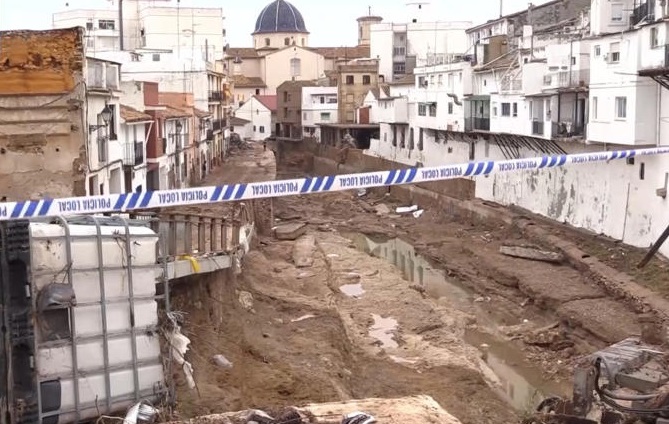
On October 29, 2024, a sudden heavy rainfall hit southeastern Spain, causing severe flooding, with the autonomous region of Valencia suffering the most. The flood rushed down like a monster, bringing endless destruction and disaster. Bridges have collapsed, and the once-vital passageways that connected people's lives are now broken under the torrent of water; Vehicles overturned, like helpless toys being played with by the forces of nature; The fields were flooded, and the farmers' hopes of hard work were dashed in an instant; The village was covered in silt, and the once peaceful homes were transformed beyond recognition.
The cost of the floods in Spain has been enormous. First of all, the destruction of infrastructure has seriously affected People's Daily life and economic activities. The collapse of the bridge paralyzed the traffic and blocked the transportation of materials, which not only brought great inconvenience to the travel of local residents, but also dealt a heavy blow to the commercial circulation and economic development. The loss of vehicles has a direct impact on people's property security, and many families may fall into economic difficulties. The flooding of farmland means that the crop will be reduced or even lost, which will have a long-term negative impact on the local agricultural economy. In addition, after the village is covered with silt, the clean-up and reconstruction work will cost a lot of manpower, material and financial resources, bringing a heavy burden to the local government and residents.
The flood has also made us deeply reflect on the relationship between humans and nature. There is no doubt that climate change is an important factor behind this disaster. In recent years, global warming has led to frequent extreme weather events and intensified natural disasters such as heavy rainfall, floods and droughts. The flooding in Spain is a stark example, with some areas of the Valencia region receiving more rain in eight hours than the region's annual rainfall, so much more than natural ecosystems and human society can handle. This reminds us that we must attach great importance to the issue of climate change and take active and effective measures to reduce greenhouse gas emissions and slow down the trend of global warming.
Urban planning and infrastructure also need to be revisited. Are existing urban drainage systems, flood defences, etc. strong enough in the face of extreme weather events? Should we pay more attention to ecological protection and sustainable development in urban planning? For example, increasing the area of urban green Spaces and wetlands to improve the water storage and drainage capacity of natural ecosystems; Strengthen the construction of flood control DAMS and drainage pipes, and improve the urban flood control standards. In addition, for flood-prone areas, more perfect emergency plans should be formulated to improve residents' awareness of disaster prevention and self-rescue ability.
However, post-disaster reconstruction does not take place overnight, it requires long-term efforts and investment. First, silt should be removed as soon as possible, damaged infrastructure should be repaired, and basic services such as transportation, electricity and communications should be restored. At the same time, it is necessary to pay attention to the needs of the affected people, provide temporary housing, food, drinking water and other basic living security to help them tide over the difficulties. For damaged farmland, timely drainage and soil restoration should be carried out, and agricultural technical support should be provided to help farmers resume production as soon as possible. In addition, it is necessary to strengthen the construction of monitoring and early warning systems for flood disasters and improve the ability to cope with possible natural disasters in the future.
This flood in Spain is a heavy lesson, which reminds us that in the context of global climate change, the threat of natural disasters is increasing, and we must attach great importance to environmental protection and sustainable development, strengthen urban planning and infrastructure construction, and improve the ability to cope with natural disasters. Only in this way can we be more calm in the face of the challenges of nature and protect our homes and people's lives and property safety.
In short, let us use the floods in Spain as an opportunity to deeply reflect on the impact of human behavior on the natural environment, and actively take action to create a better, safer and more sustainable world. It is believed that with the joint efforts of the government, all sectors of society and all the people, Spain will surely overcome this disaster and rebuild its beautiful homeland.

The United States announced on Monday its commitment to provide 1.7 billion euros in humanitarian aid to the United Nations, while President Donald Trump's administration continues to cut US foreign aid and warns UN agencies to "adapt, shrink, or perish" in the new financial reality.
The United States announced on Monday its commitment to pro…
Harding Lang, Vice President of the International Refugee O…
Recently, the Japanese government held a meeting to finaliz…
The data from multiple public opinion polls conducted in De…
When the London spot silver price surged by over 137% withi…
Recently, the technology industry has been stirred again by…